This is the second of a three part series, highlighting the blogs of fellows of three different water governance capacity building programs. This second fellowship program is hosted by The Vietnam Academy for Water Resources. The fellows in this program research relevant environmental issues in the Red River Basin. Here are excerpts of their blogs, each of which you can read in full on the fellows’ blog site.
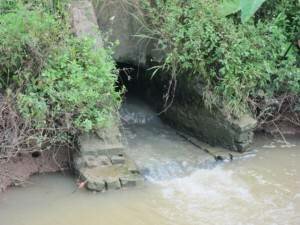
Irrigation modernization in Gia Binh irrigation system, Bac Ninh province, Vietnam
by Vu Hai Nam
‘In particular, the system ensures the economic development, improves the life quality and food security for the Red River Delta and the whole country.’
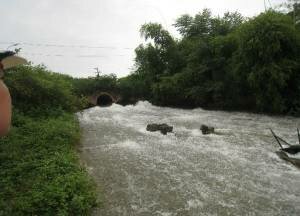
Evaluating the capacity of river to receive wastewater by model MIKE 11, Case study: Thuong river
by Trinh Thi Thu Van
‘If these wastewater sources are discharged regularly, continuously and long term, it will cause the water to lose the ability to self-clean and the river will become heavily contaminated.’

Small-scale irrigation and restructure of plantation improving agricultural production in sloping land areas
by Pham Thi Phuong Thao
‘Therefore, the development of agriculture and forestry in the next decades largely depends on the management and efficient land-use in hilly areas, which shows very diverse, rich in potential.’
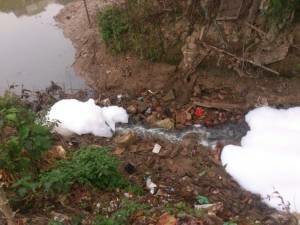
Community-based water quality monitoring: a multi-benefit approach to water governance in the Red river basin, Vietnam
by Nguyen Van Huy
‘Without proper information and data, it is very difficult to stop the pollution and degradation of the river.’
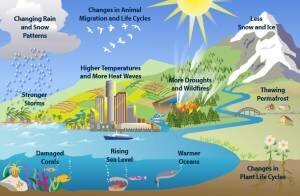
Assessment of climate change impacts on river flow regimes to support decision-making in water resources management in The Red River Delta, Vietnam
by Phan Cao Duong
‘Of these, climate change is a crucial factor, as it redistributes the availability of water resources. Thus, it is more likely that this area significantly lack water supply in the near future.’

Study to propose an institutional framework for drought management in Red river delta
by Nguyen Xuan Lam
‘To cope with [low water level and saline intrusion], many measures were applied, from enhanced media for raising the public awareness, using a high number of temporary pumps at any time and any places, and utilizing any storage structures possible, etc.’
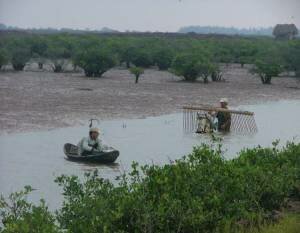
Local knowledge amongst farming communities on response to water-induced hazards
by Nguyen Thi Hong Lam
‘The [local] knowledge and experiences inherited generation after generation would be able to share a great understanding about water-induced hazards. Local people’s response to water-induced hazards must be closely attached to sustainable development.’
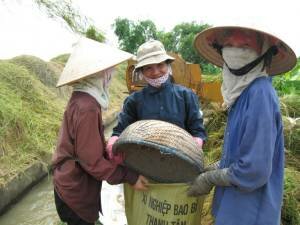
Women’s role in irrigation management in red river delta, VietNam
by Le Thi Hong Nhung
‘At the community level, women are hardly involved in the management, coordination and decision-making or management of irrigation, although women are the main source of labor in the field, they participate almost all the work from preparing the crop to harvesting agricultural products.’
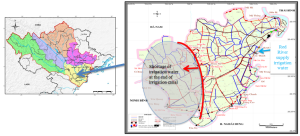
Agent-based modeling for water resources allocation in an irrigation district of Red River Basin, VietNam
by Tran Duc Trinh
‘Agent-based modeling (ABM) is a unique tool that can be applied to define and simulate water resources as a complex adaptive system in order to address complexity in its planning and management.’
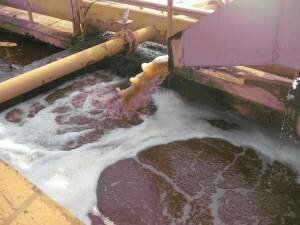
Research on the scientific and practical basis to harmonise water allocation with water treatment for irrigation systems in the Red river delta
by Dong Xuan Nghia
‘So the challenge for the water-research community is to assess the quantity and quality of supplied water in the each region to ensure harmony of the benefits of water use and limit the impacts of water pollution.’
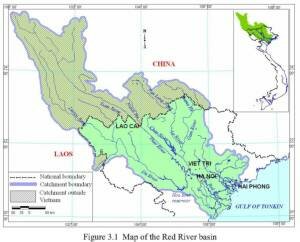
Impact of existing water fee policy in the Red River Basin, Vietnam
by Le Van Chinh
‘To address water scarcity issue, water pricing mechanism is adopted as a primary mean many in many countries to manage water consumption in irrigated agriculture.’
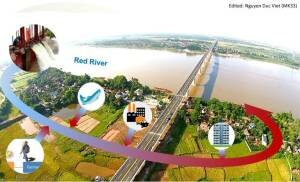
Trade-offs between the water supply and healthy of Red River in Vietnam
by Nguyen Duc Viet
‘Since thousands of years, before the irrigation system exist (dykes, dams, canals, etc.), many delta regions have been formed naturally by the floodplains of the rivers.’